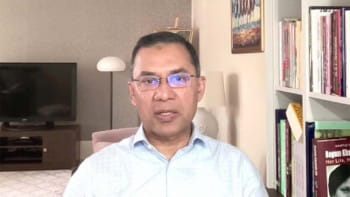Why does justice elude indigenous female victims of violence?

While violence against women in general is prevalent across the country, the situation is worse on all fronts for indigenous women. They are doubly victimised because of their gender and their ethnicity. In a recent event jointly organised by Manusher Jonno Foundation (MJF), Bangladesh Indigenous Women Network (BIWN), and Kapaeeng Foundation, statistics were unveiled which show how poorly indigenous women victims of violence are treated by the law and order forces. Reportedly, legal cases were filed with police in only 128 of the 460 incidents of violence faced by indigenous women and girls between 2009 and 2020 in 39 districts.
Another disturbing finding of the study was that around 88 percent of incidents of rape were perpetrated by non-indigenous individuals. It also found that police and administration are often biased towards powerful perpetrators (who belong to the majority Bengali community), and that doctors are even pressurised or bribed to create negative medical reports of indigenous survivors of sexual abuse. Of course, besides underreporting being prevalent, politically connected criminals often force victims to withdraw their cases. Earlier reports by this daily also state how the scopes for reporting violence and seeking treatment and rehabilitation are also inaccessible for indigenous women in remote areas—which further enables the miscreants to commit sexual violence against them.
What is most alarming is the indication that the widespread violence against indigenous women is taking place with the implicit or explicit endorsement of state institutions. What else explains the systematic reluctance of the police to even record cases of indigenous women and girls, much less investigate those cases without bias? The fact that even doctors and hospital authorities are too biased—or too scared—to issue authentic medical reports paints a deeply troubling picture of their impossible struggles.
We wonder why the government cannot take concrete steps to counter sexual crimes and end the impunity enjoyed by powerful groups. It is shameful that crimes against women based on their gender and ethnicity are being committed with so little resistance from government bodies. The law enforcement agencies and administration must remember that they are mandated to protect all citizens of the country, not just the majority or a powerful few. As the above study demonstrates, the issue of violence against indigenous women cannot be looked at separately from the wider political issues concerning indigenous communities in the CHT, so the government must resolve the longstanding tensions in the region for peace and security of indigenous women and girls.


 For all latest news, follow The Daily Star's Google News channel.
For all latest news, follow The Daily Star's Google News channel. 








Comments